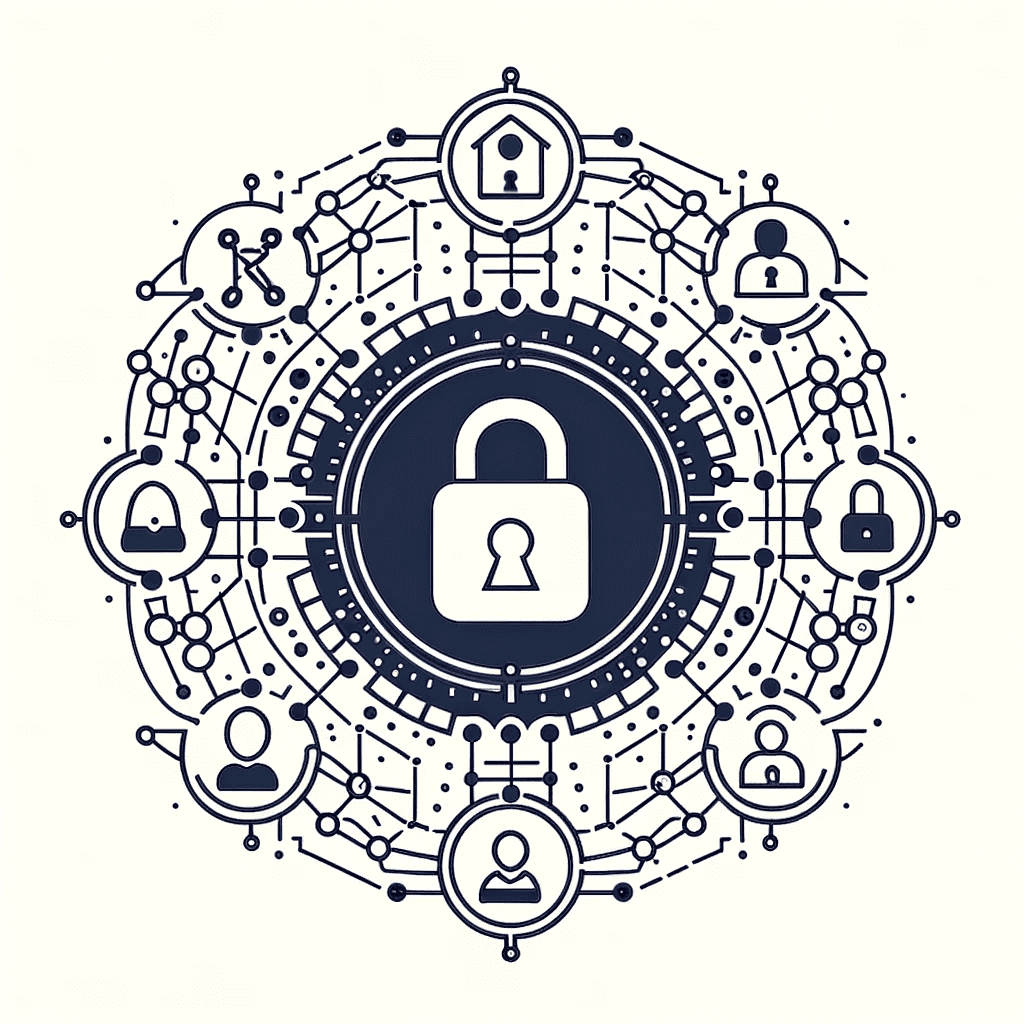Decentralized Identity: Empowering Trust and Security in the Digital Age
By: SBIP and Zaw Min Htet (Backend Software Engineer)
20 Feb 2024

Introduction:
In today's digital age, the need for secure and trustworthy identity verification has become paramount. Traditional centralized identity systems often suffer from privacy concerns, data breaches, and limited control over personal information. However, the advent of decentralized identity solutions is revolutionizing the way individuals assert and manage their identities. In this blog post, we will explore the concept of decentralized identity and delve into its benefits, use cases, and the potential it holds for a more secure and user-centric digital world.
What is Decentralized Identity?
Decentralized identity is also referred to as DID, refers to a paradigm shift in identity management, where individuals have full control over their digital identities without relying on centralized authorities or intermediaries. It leverages blockchain technology, cryptography, and self-sovereign identity principles to provide a secure, private, and interoperable framework for managing identity-related information.
Benefits of Decentralized Identity Solutions
- Enhanced Privacy and Data Control: Decentralized identity solutions empower individuals to manage their personal data and control what information is shared with service providers. It eliminates the need for users to entrust their sensitive information to centralized databases, reducing the risk of data breaches and unauthorized access.
- Security and Trust: By leveraging cryptographic techniques, decentralized identity ensures secure authentication and verification of individuals' identities. This helps mitigate identity fraud, impersonation, and other forms of malicious activities. The tamper-proof nature of blockchain technology enhances trust in identity verification processes.
- Interoperability and Portability: Decentralized identity solutions enable individuals to have a portable identity that can be used across various platforms, services, and even geographical borders. It eliminates the need for redundant identity verification processes and streamlines user experiences.
- User-Centricity and Empowerment: With decentralized identity, individuals become the owners of their identities, granting them greater control and autonomy. Users can choose which aspects of their identity to disclose, enabling selective sharing of personal information, thus protecting privacy while meeting service providers' requirements.
- Digital Identity Verification: Decentralized identity enables seamless and trusted verification processes for online services, such as banking, e-commerce, and social media platforms. Users can verify their identities without sharing unnecessary personal data, reducing the risk of identity theft.
- Decentralized Credentials and Certifications: Educational institutions, professional organizations, and certification bodies can issue verifiable credentials on the blockchain. This allows individuals to securely store and share their academic achievements, professional certifications, and other credentials, eliminating the need for paper-based certificates.
- Access to Government Services: Decentralized identity solutions can simplify citizen-government interactions by providing secure and self-sovereign digital identities. This enables individuals to access government services, submit applications, and authenticate themselves digitally, fostering efficiency and transparency.
- Cross-Border Identity Verification: Decentralized identity has the potential to streamline identity verification processes across borders. Travelers can securely and efficiently prove their identities and travel history without the need for cumbersome paper-based documents, enhancing border security and facilitating smoother immigration procedures.
Use Cases of Decentralized Identity Solutions
Conclusion
Decentralized identity solutions are reshaping the landscape of digital identity management. By prioritizing privacy, security, and user control, these solutions empower individuals to assert their identities in a trustworthy and efficient manner. As the technology continues to evolve, decentralized identity holds immense potential for transforming various sectors, driving innovation, and creating a more user-centric digital world. Embracing decentralized identity is not only a step towards better security and privacy but also a leap towards a more inclusive and empowering digital future.
In the dynamic world of blockchain technology, it is crucial to have a team of experts who possess deep knowledge and expertise in decentralized identity (DID) solutions and blockchain technologies. At Singapore blockchain innovation programme (SBIP), our team comprises professionals who are well-versed in these areas and are ready to provide consulting services and collaborate with you on your projects involving decentralized identity solutions or blockchain implementations.
Our commitment goes beyond providing services. We strive to create a vibrant ecosystem for blockchain development. Through our community events, workshops, and strategic partnerships, we aim to connect blockchain enthusiasts and innovators, fostering strong relationships and nurturing an environment that supports thriving blockchain projects.
If you are curious to explore the immense potential of blockchain technology and its diverse applications, we warmly invite you to join us at SBIP. Together, we can delve into the world of blockchain, unlock new opportunities, and shape the future of decentralized identity and blockchain solutions.
Join us on this exciting journey of innovation and discovery. Contact our team at SBIP to start exploring the possibilities today.

Visit and Follow us at:
Website https://sbip.sg
LinkedIn https://www.linkedin.com/company/sbip-sg/
Facebook https://www.facebook.com/singaporeblockchaininnovationprogramme
Instagram https://www.instagram.com/sbip.sg/
Discord https://discord.com/invite/KxA4kHTPN6
Youtube https://www.youtube.com/@sbipsg